AI in Education: Transforming Learning and Teaching in the 21st Century
Contents
Introduction
Artificial Intelligence (AI) is revolutionizing various sectors, and education is no exception. With its potential to personalize learning, enhance teaching methodologies, and streamline administrative tasks, AI is transforming the educational landscape. This detailed blog post explores how AI is reshaping learning and teaching in the 21st century, highlighting key applications, benefits, and future prospects.
1. Personalized Learning Experiences
Tailored Education for Every Student
One of the most significant benefits of AI in education is its ability to provide personalized learning experiences. AI-powered systems can analyze a student’s strengths, weaknesses, learning pace, and preferences to create customized learning plans.
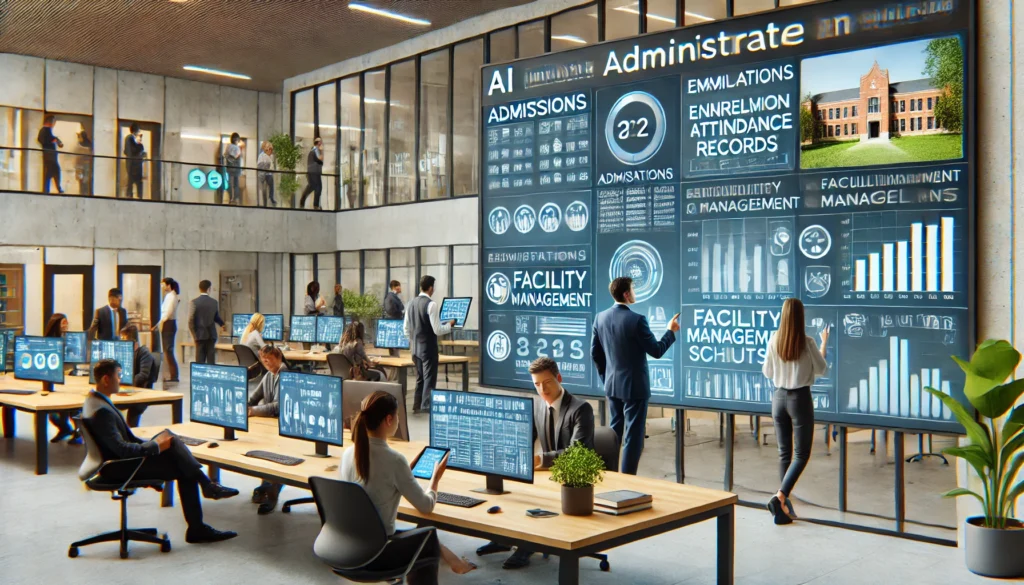
- Impact on Students:
- Adaptive Learning Platforms: These platforms use AI algorithms to adjust the difficulty level and content based on the student’s performance. Examples include DreamBox, Knewton, and Smart Sparrow.
- Intelligent Tutoring Systems: AI tutors, such as Carnegie Learning and Thinkster, provide personalized guidance and support, helping students master complex concepts.
- Real-Time Feedback: AI tools offer instant feedback on assignments and assessments, allowing students to identify areas for improvement and track their progress.
Real-World Example:
- Knewton: An adaptive learning platform that uses AI to provide personalized educational content and recommendations for students.
Actionable Steps:
- Implement Adaptive Learning Tools: Schools and educational institutions should integrate adaptive learning platforms to personalize education for each student.
- Leverage AI Tutors: Encourage students to use AI-powered tutoring systems for additional support in challenging subjects.
- Utilize Real-Time Feedback Tools: Teachers can use AI tools to provide timely feedback and track student progress effectively.
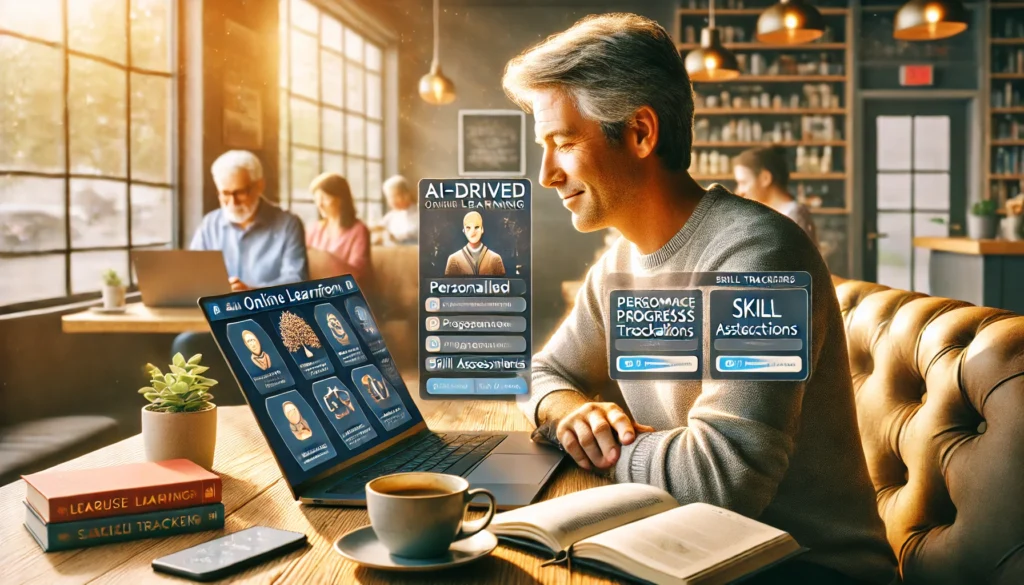
2. Enhancing Teaching Effectiveness
Empowering Educators with AI Tools
AI is not only transforming student learning but also enhancing teaching effectiveness. By automating routine tasks and providing valuable insights, AI empowers educators to focus on what matters most—teaching and mentoring students.
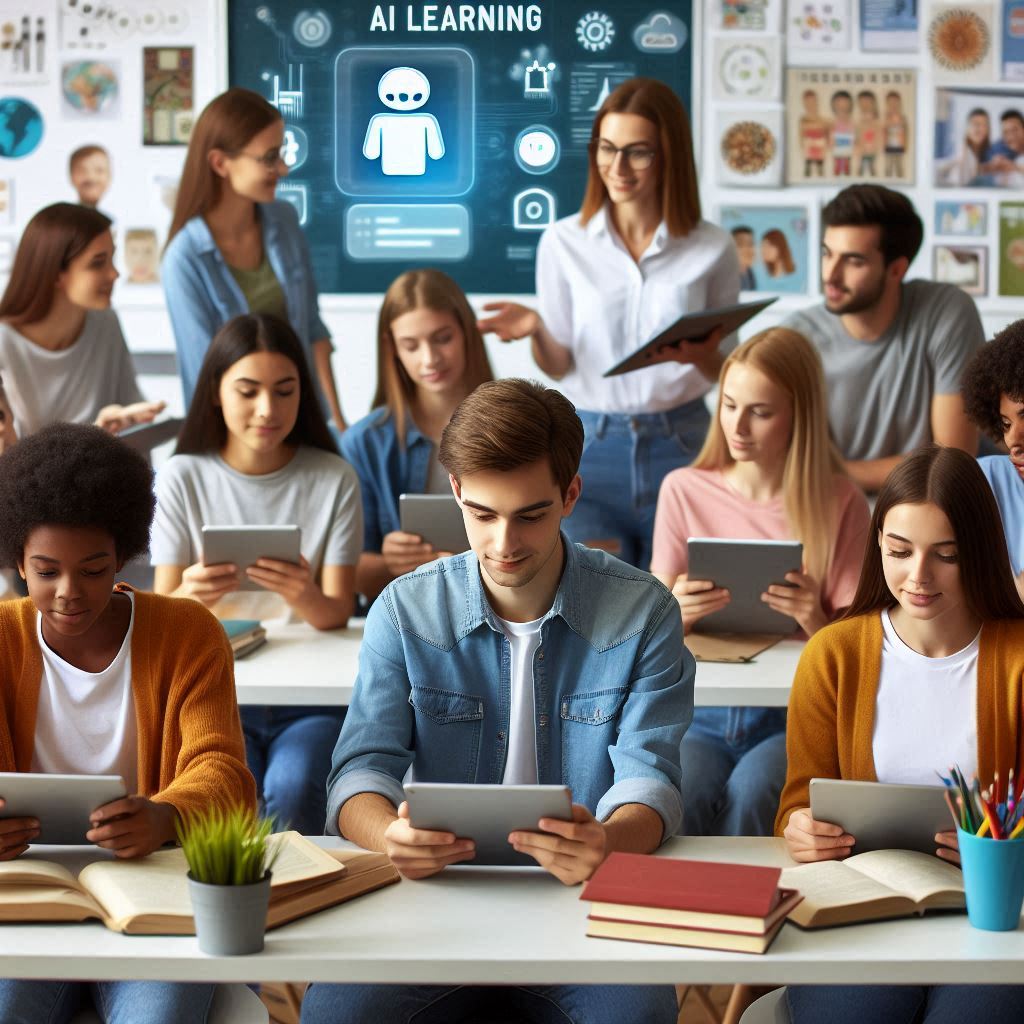
- Impact on Educators:
- Automated Grading: AI-powered grading systems, such as Gradescope, can assess assignments and exams quickly and accurately, saving teachers time and effort.
- Lesson Planning Assistance: AI tools can suggest personalized lesson plans based on the curriculum, student performance data, and learning objectives.
- Classroom Management: AI-driven classroom management systems can monitor student behavior, track attendance, and identify students who may need additional support.
Real-World Example:
- Gradescope: An AI-driven grading tool that automates the grading process for assignments and exams, enabling teachers to provide timely feedback.
Actionable Steps:
- Adopt AI Grading Tools: Educators should use AI-powered grading systems to streamline the assessment process and provide timely feedback to students.
- Utilize AI for Lesson Planning: Teachers can leverage AI tools to create personalized and effective lesson plans based on student needs.
- Implement Classroom Management Systems: Schools should integrate AI-driven classroom management tools to improve student engagement and support.
3. Streamlining Administrative Tasks
Improving Efficiency in Educational Institutions
AI is also making a significant impact on the administrative side of education. By automating routine tasks and providing data-driven insights, AI is helping educational institutions operate more efficiently.
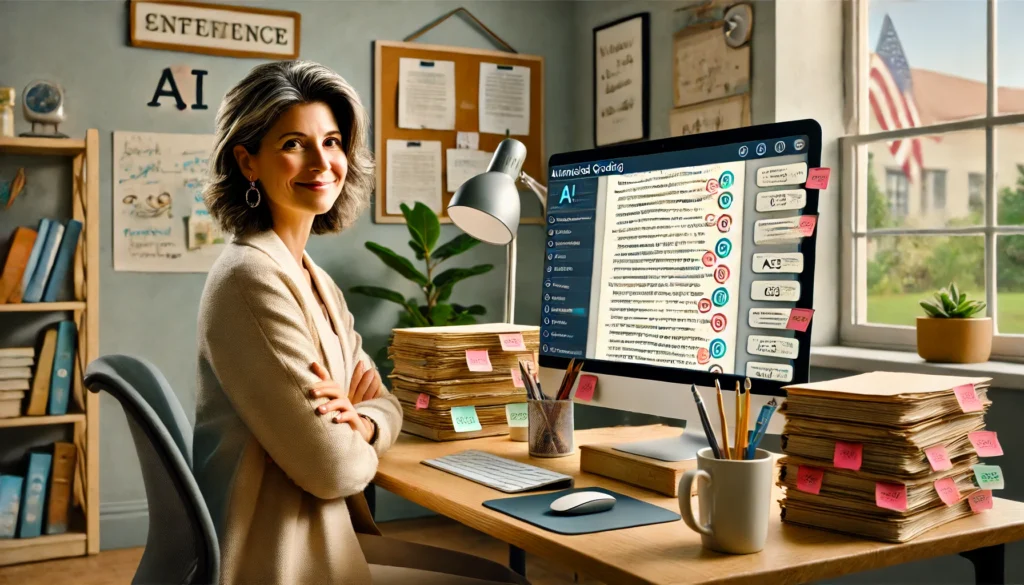
- Impact on Administration:
- Admissions and Enrollment: AI systems can analyze applications, predict student success, and streamline the admissions process. Examples include AdmitHub and Element451.
- Attendance and Record Keeping: AI-powered systems can automatically track attendance, manage student records, and generate reports.
- Facility Management: AI can optimize facility usage, monitor energy consumption, and manage maintenance schedules.
Real-World Example:
- AdmitHub: An AI-powered platform that helps educational institutions automate and personalize the admissions process.
Actionable Steps:
- Automate Admissions Processes: Schools and universities should use AI-powered tools to streamline admissions and enrollment.
- Implement AI Attendance Systems: Educational institutions can adopt AI systems to track attendance and manage student records efficiently.
- Leverage AI for Facility Management: Use AI tools to optimize facility usage and manage maintenance schedules effectively.
4. Supporting Special Education
Inclusive Learning for All
AI has the potential to transform special education by providing tailored support to students with diverse learning needs. AI-powered tools can offer personalized interventions, assistive technologies, and data-driven insights to support students with disabilities.
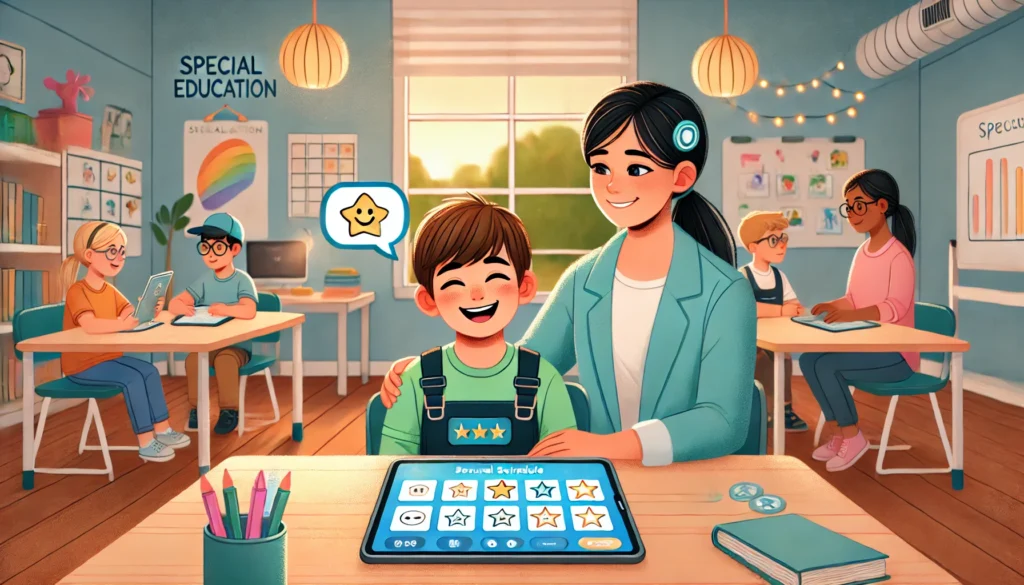
- Impact on Special Education:
- Assistive Technologies: AI-driven assistive devices, such as speech recognition software and text-to-speech applications, help students with disabilities access learning materials.
- Personalized Learning Plans: AI can create individualized education plans (IEPs) based on each student’s unique needs and progress.
- Behavioral Analysis: AI tools can monitor student behavior, identify patterns, and provide insights to support positive behavior interventions.
Real-World Example:
- CogniToys: AI-powered educational toys that adapt to each child’s learning style and provide personalized learning experiences.
Actionable Steps:
- Implement Assistive Technologies: Schools should integrate AI-driven assistive devices to support students with disabilities.
- Develop Personalized Learning Plans: Educators can use AI tools to create and monitor individualized education plans for special education students.
- Utilize Behavioral Analysis Tools: Teachers can leverage AI to monitor student behavior and implement positive behavior interventions.
5. Fostering Lifelong Learning
Continuous Education and Skill Development
AI is also playing a crucial role in fostering lifelong learning and continuous education. With the rapid pace of technological advancements, individuals must continuously update their skills and knowledge. AI-powered platforms provide personalized learning experiences for adult learners, professionals, and lifelong learners.
- Impact on Lifelong Learning:
- Online Learning Platforms: AI-driven platforms, such as Coursera and edX, offer personalized course recommendations and adaptive learning paths for learners of all ages.
- Skill Development: AI can identify skill gaps and suggest relevant courses, workshops, and training programs to help individuals stay competitive in the job market.
- Career Guidance: AI-powered career guidance tools provide personalized advice based on an individual’s interests, skills, and career goals.
Real-World Example:
- Coursera: An online learning platform that uses AI to provide personalized course recommendations and adaptive learning paths.
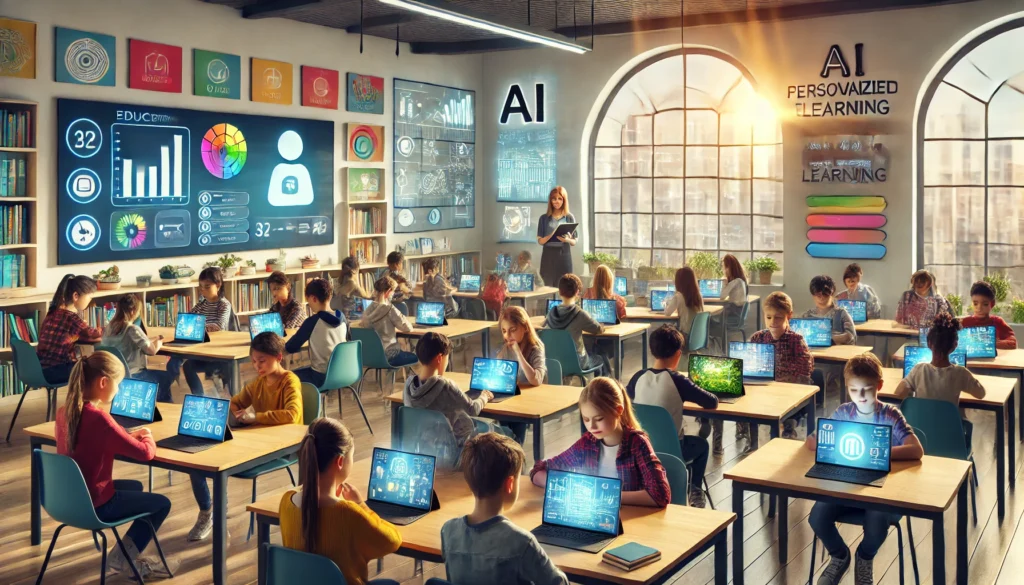
Actionable Steps:
- Promote Online Learning Platforms: Educational institutions and organizations should encourage the use of AI-driven online learning platforms for continuous education.
- Leverage AI for Skill Development: Individuals can use AI tools to identify skill gaps and find relevant learning opportunities.
- Utilize AI for Career Guidance: Career counselors and advisors can use AI-powered tools to provide personalized career guidance and support.
Conclusion
AI is transforming learning and teaching in the 21st century, offering personalized learning experiences, enhancing teaching effectiveness, streamlining administrative tasks, supporting special education, and fostering lifelong learning. By integrating AI-powered tools and platforms, educational institutions can create more inclusive, efficient, and effective learning environments. As AI continues to evolve, its potential to revolutionize education will only grow, paving the way for a brighter future for learners and educators alike.
Must read : Quantum Computing Breakthroughs

